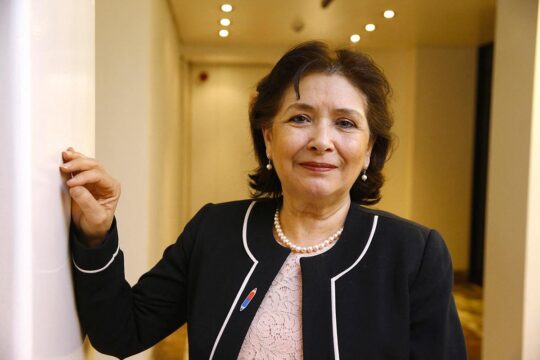Key developments in Tunisia in the seven years since president Zine El Abidine Ben Ali was toppled in a revolt that sparked a wave of uprisings in the region.
- 2011: President flees -
Ben Ali quits on January 14, 2011 after weeks of demonstrations sparked by the self-immolation of a fruit seller who was protesting police harassment and unemployment.
He is the first leader to stand down in the Arab Spring, fleeing to Saudi Arabia after 23 years in power.
In October, Islamist group Ennahda wins 89 of the 217 seats in a new constituent assembly, just months after being legalised in March. It is Tunisia's first free election.
The assembly elects former opposition leader Moncef Marzouki as president in December.
- 2012: Attacks, unrest -
In June and August, violent demonstrations erupt, while Islamists start staging attacks.
In September, four attackers are killed in clashes at the US embassy as hundreds protest over an anti-Islam film.
In late November, riots break out in Siliana, southwest of Tunis, in which 300 are injured.
Since the summer, sometimes violent strikes and demonstrations have affected industry, public services, transport, and business. The unrest in mostly in the country's economically sidelined interior.
- 2013: Opposition leaders killed -
In February, prominent anti-Islamist opposition leader Chokri Belaid is assassinated in Tunis, sparking deadly protests and a political crisis.
In July, leftist opposition leader Mohamed Brahmi is also shot dead. Jihadists claim both killings.
- 2014: First free presidential poll -
In January, lawmakers adopt a new constitution after two years of turmoil that has exposed a deep rift between Ennahda and the secular opposition.
In October, the secular Nidaa Tounes party led by Beji Caid Essebsi comes top in the parliamentary polls.
Two months later, Essebsi defeats Marzouki in Tunisia's first free presidential election.
- 2015: Carnage -
In 2015, the country suffers three attacks claimed by the Islamic State jihadist group.
In March, 21 tourists and a policeman are killed as gunmen assail the Bardo museum in Tunis.
In June, attackers kill 38 foreign tourists, 30 from Britain, in a coastal resort town south of Tunis.
And in November, a suicide bomber kills 12 presidential guards in the capital.
- 2016: New protests -
In January 2016, a wave of protests against poverty and unemployment erupt throughout the country. It is the worst social unrest since the 2011 revolution.
The unrest fans out from the central town of Kasserine, where an unemployed man died of electrocution during a protest.
In a new attack in March, at least 35 jihadists, 11 members of the security forces and seven civilians are killed during an assault on security installations in the town of Ben Guerdane on the Libyan border.
In August, Youssef Chahed of Nidaa Tounes forms a national unity government including ministers from Ennahda and independents.
In November, a Truth and Dignity Commission begins hearings into six decades of dictatorship, including under Ben Ali.
- 2017: 'Decisive measures' -
The International Monetary Fund in December 2017 calls on Tunis for "urgent action" and "decisive measures" to reduce its deficit, after giving the country a $2.9-billion loan the previous year.
- 2018: New protests -
In January, after an austerity budget comes into force, peaceful protests start.
They degenerate into riots, with more than 200 people arrested by January 10.





